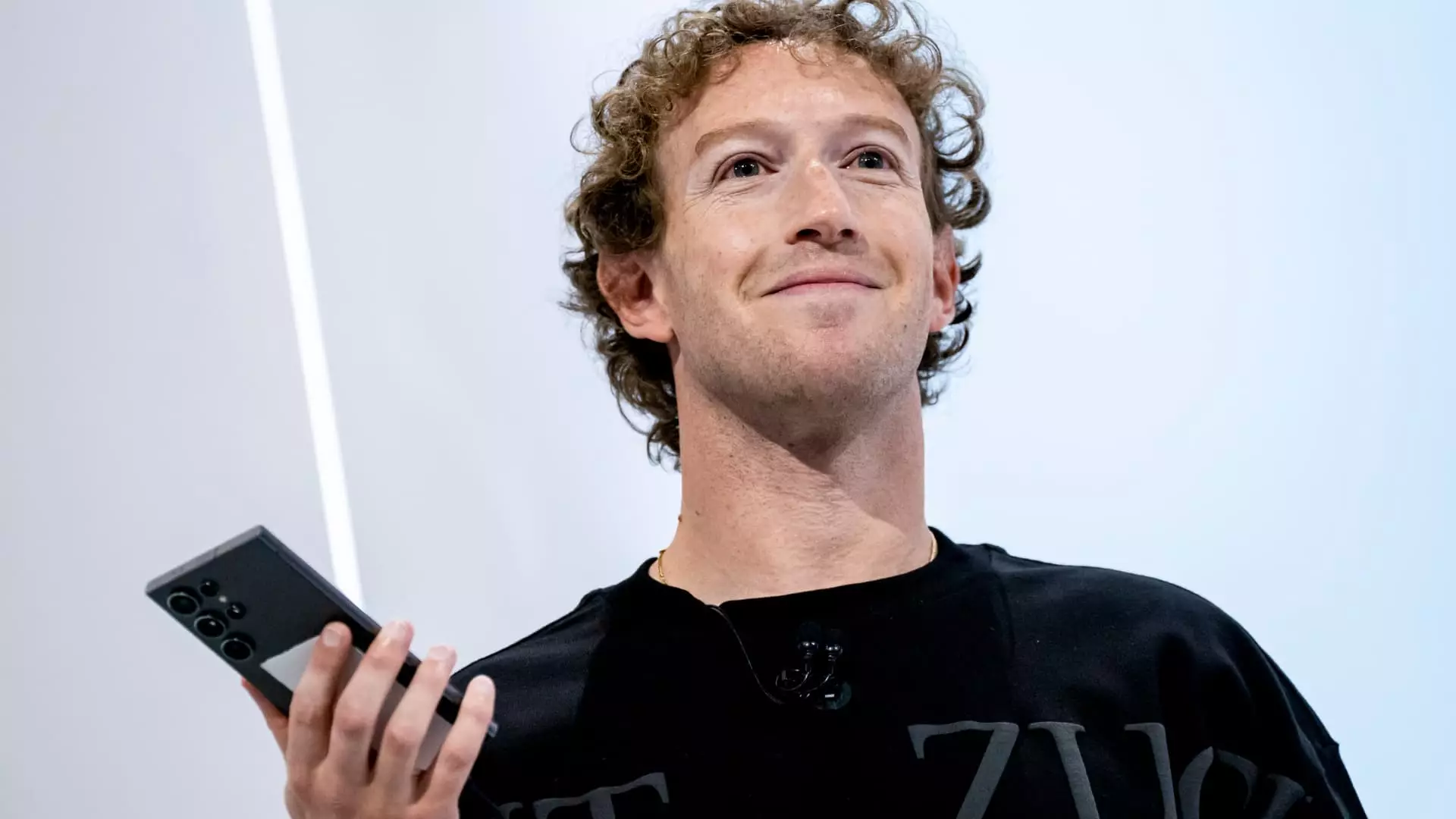In a recent episode of the “Joe Rogan Experience,” Mark Zuckerberg, the CEO of Meta, voiced his concerns about Apple’s apparent stagnation in innovation. This revelation is significant not only because it highlights a rivalry between two of the most influential companies in technology but also because it raises questions about the future of innovation in the tech industry. Zuckerberg’s assessment echoes the sentiments of many within the tech community who believe that Apple has been riding the coattails of its past successes without delivering groundbreaking advancements.
Zuckerberg acknowledges the impact the iPhone has had on global connectivity, framing it as a monumental achievement that has transformed lives and industries. However, his criticism centers around what he perceives as Apple’s reliance on this legacy. He posits that since the iconic launch of the iPhone nearly two decades ago, Apple has failed to innovate significantly, suggesting a complacency that has led to a series of incremental upgrades rather than revolutionary advancements.
According to Zuckerberg, the lack of substantial improvements in new iPhone models correlates with less frequent consumer upgrades. This stagnation could suggest market saturation—the iPhone has effectively become ubiquitous, with many consumers feeling their existing devices serve them well enough, thus delaying their purchases of newer models.
The financial strategies of Apple come under fire in Zuckerberg’s analysis, particularly their charging of a 30% fee on developers within their ecosystem. Zuckerberg argues that instead of innovating, Apple is financially squeezing its user base by generating revenue through these fees and peripheral sales rather than creating new, compelling products.
This perspective sheds light on the broader issue of how major tech firms monetize their platforms. Zuckerberg suggests that Apple’s move to enforce strict rules around product integration may not ultimately benefit the consumer or the developer community. Instead, it creates a walled garden that stifles competition and hinders collaborative innovation. This model raises ethical questions regarding how companies balance profit motives with their foundational commitments to innovation and consumer choice.
One of Apple’s core marketing messages is its emphasis on user privacy and security. Zuckerberg countered this claim, arguing that the rationale provided by Apple to restrict the use of third-party accessories and products stems from an insecure infrastructure—one that Apple has not adequately addressed. In his opinion, the protocols could be overhauled to better facilitate third-party access while maintaining stringent security standards.
This points to a prevalent tension in the tech industry: the balance between maintaining user privacy and fostering an open ecosystem that encourages a variety of choices and innovations. Zuckerberg’s critique highlights a fundamental belief that in a rapidly evolving digital landscape, consumers should have access to diverse tools and applications without facing the constraints imposed by dominant players.
Zuckerberg’s remarks also touched on Apple’s recent foray into virtual reality with the Vision Pro headset. His initial feedback was restrained, acknowledging that it represents a bold attempt to innovate in a space crowded with potential. However, he questioned the efficacy of this product in capturing market interest, especially given its disappointing sales performance.
This skepticism aligns with a pattern of consumer reactions to new tech products in a landscape that is increasingly driven by user-centric design and functionality. Zuckerberg’s sentiment suggests that even established companies like Apple must remain nimble and responsive to consumer needs and desires to avoid being overshadowed by competitors who better understand the evolving tech landscape.
Zuckerberg’s critique of Apple underscores vital discussions in the tech community regarding innovation, competition, and market dynamics. As consumer expectations continually evolve, the pressure is on companies like Apple to not only maintain their legacy but also reinvigorate their commitment to innovation. The rise of challengers, such as Meta’s offerings, exemplifies the dynamic nature of the tech landscape, where past triumphs cannot guarantee future success. The coming years will be critical; companies that adapt and innovate will thrive, while those that cling too tightly to their legacy may find themselves outpaced in a fast-moving industry.


Leave a Reply